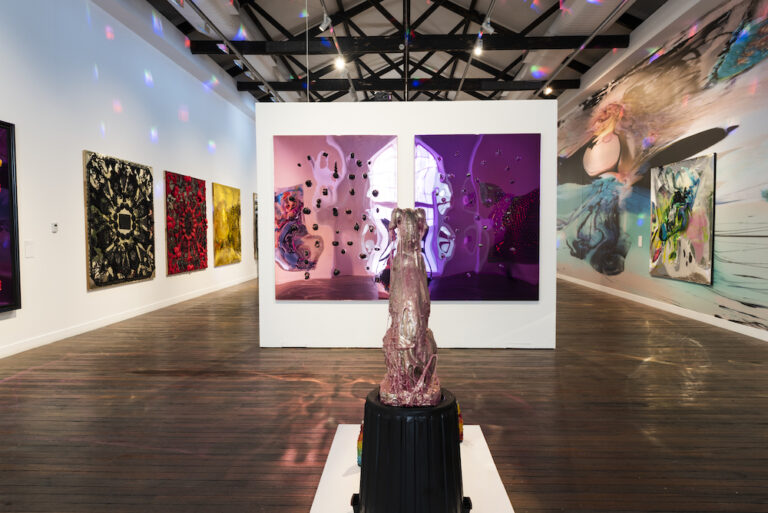
High hopes for medical cannabis legislation

By Sophie Trigger
State legislation to allow the use of cannabis by the terminally ill is a polarising election issue and raises questions about self-medication for mental health reasons.
While Premier Mike Baird and Opposition Leader Luke Foley support the passing of laws in this direction, they disagree on the need for further trials to improve the evidence base.
State Labor MP Adam Searle was part of a 2013 inquiry into cannabis legislation and is skeptical that the trials are necessary given the evidence from overseas trials.
“What we received evidence of, from individuals and groups – and even doctors – is that there are a number of beneficial effects of cannabis,” said Mr Searle.
The benefits include pain relief, the reduction of nausea, and the stimulation of hunger for cancer patients undergoing treatment, Searle’s said his father self-medicated for these reasons.
Foley told a press conference on January 11 he believed the Drug Misuse and Trafficking Act should be changed to legalise medical use of cannabis without a trial period.
He argues that cannabis-derived products have been shown to improve the quality of life for terminally ill patients without “anyone getting high” and is concerned about the Liberal Governments decision to conduct further trials.
“Is this just a device dreamed up by the Premier to spin his wheel so he looks like he’s doing something new and interesting and progressive, but really actually not doing anything?” he said.
Sydney student, Brodie Pyke, 20, supports cannabis use for the terminally ill, and told City Hub the issue would be something that will affect his vote in March.
He also knows many young people who use the drug as a form of self-treatment for mental health conditions, such as anxiety and depression, and queries whether this could prompt further trials in the field of mental illness.
“For people who are suffering from depression, particularly, I feel that sometimes it is good for them to do that because they’re able to calm down and feel a lot better,” said Mr Pyke.
He adds that by decriminialising the drug, the Government could take control of the situation and prevent the abuse and dependency on marijuana.
In addressing the issue of dependency, student Abigail (surname withheld) reflects that cannabis is not necessarily any more addictive than many other medications available for mental health issues.
“I use it to help me get to sleep sometimes, and I do know people who have used it for anxiety, ” said Abigail, 19.
“[I] use it to get your mind off things, and I think if its made legal, it can be used in a way that is much more effective, and not in conjunction with other stupid activities.”
However, Adam Searle said that no evidence has been presented on the subject of marijuana use for mental illnesses.
“I have never heard it suggested in the committee’s evidence or in any of the submissions … that cannabis or cannabis-derived products would have any beneficial effect on mental illness.”
And it does seem an unlikely path in the short term, given the divisions in Parliament over the decriminalisation of marijuana for the terminally ill.
Sydney University Psycho-pharmacologist David J. Allsop wrote for The Conversation that dosage is key to effective medical outcomes. He said regular use during adolescence was proven to have negative consequences.
“THC clearly has important therapeutic effects in multiple sclerosis and pain, in stimulating appetite in HIV or cancer patients, and even for anxiety disorders, such as post-traumatic stress disorder,” reads the piece, ‘Old Dope, New Tricks.’
NSW Health Minister Jillian Skinner told Fairfax last week that it would be “irresponsible” for Labor to abandon the trials.
“To abandon the trials would be to leave families who are already facing the greatest crisis of their lives without the guidance, confidence and support they need,” she said.
Adam Searle also points out the dangers of the Government allowing police to use their own discretion in prosecution.
“I don’t think it’s a very safe idea to have politicians telling police what laws they can and should enforce and what laws they can’t,” he said.
“That’s the sort of slippery slope towards a police state … If there’s a law, it’s got to be upheld.”
Mr Searle maintains that medicinal cannabis remains a key issue between the major parties in the upcoming election.
“We think there is urgency to this and that there has to be action now, to alleviate suffering that is in fact avoidable … there is a clear choice on this issue.”
Young people of Sydney have indicated that a demand could exist in the future for trials into mental health conditions, by way of better controlling those who self-medicate.
“I do think that they should look into it,” Brodie Pyke, of Canterbury, told City Hub, “because a lot of people will just go out and get it themselves anyway.”
While voting for immediate action this election will allow cannabis to be decriminalised for the terminally ill, it seems unlikely that this will soon be extended to a wider range of illnesses.









